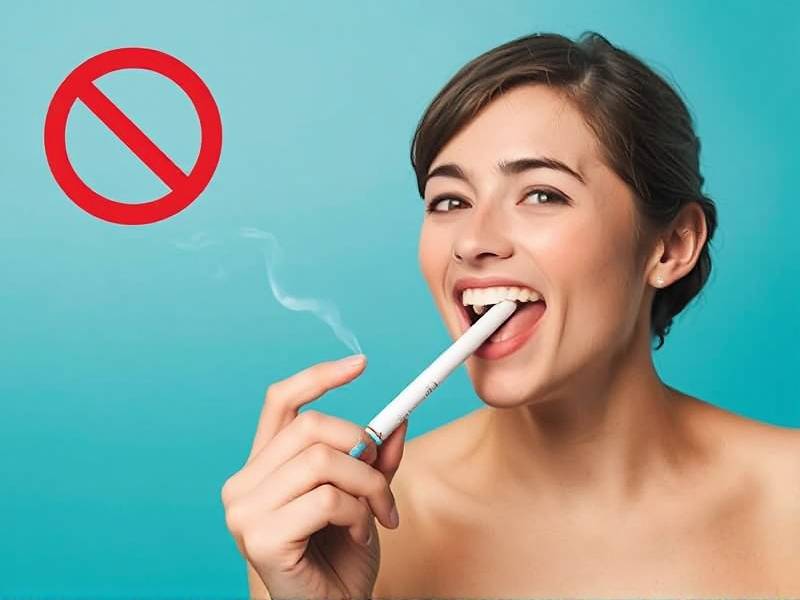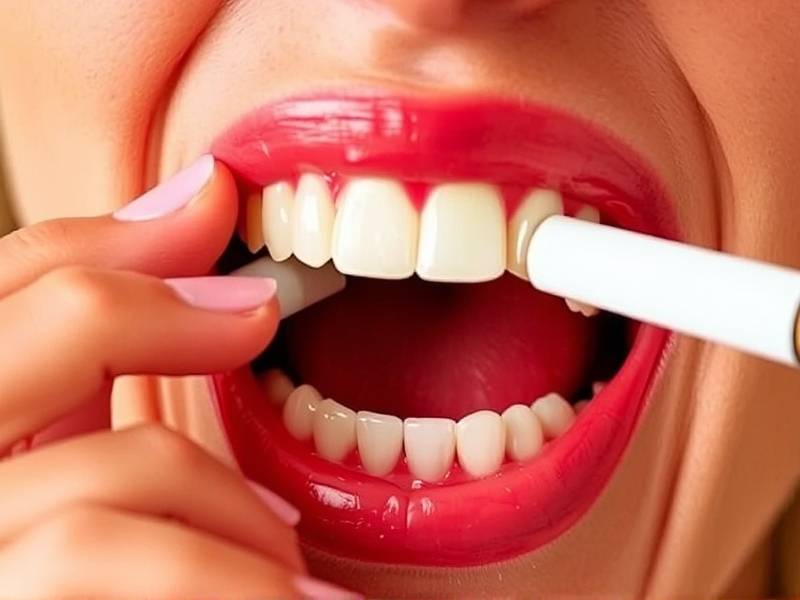Do Teeth Really Get Whiter When You Quit Smoking? The Science Behind the Myth
Do Teeth Really Get Whiter When You Quit Smoking? The Science Behind the Myth
Introduction: When it comes to quitting smoking, many people are motivated by the promise of improved health and appearance. One of the most commonly cited benefits is whiter teeth. But does quitting smoking really lead to a brighter smile? Let's delve into the science behind this myth.

What Causes Stained Teeth? To understand why quitting smoking may lead to whiter teeth, we first need to know what causes teeth staining. There are several factors at play:

- Tar and Nicotine: Smoking introduces tar and nicotine into the mouth, which can adhere to tooth enamel and cause yellowing over time.
- Acidic Saliva: The increased production of acidic saliva can wear away at tooth enamel, making it more susceptible to stains.
- Poor Oral Hygiene: Smokers often have less effective oral hygiene routines due to reduced saliva flow and less motivation for brushing.
The Impact of Quitting Smoking on Tooth Enamel Now that we understand the causes of stained teeth, let's explore how quitting smoking can contribute to a brighter smile:
- Reduced Tar and Nicotine Exposure: By quitting smoking, you eliminate the continuous exposure to tar and nicotine that contribute to tooth staining.
- Improved Saliva Flow: Quitting smoking can stimulate better saliva flow, which helps wash away food particles and bacteria from your teeth.
- Enhanced Oral Hygiene: Many smokers take up better oral hygiene practices after quitting, leading to more effective stain removal.
The Role of Professional Cleanings While quitting smoking can contribute to a whiter smile, it's important to note that professional cleanings play a crucial role in removing stubborn stains:
- Deep Cleaning: Professional cleanings use specialized tools and techniques to remove tartar buildup that regular brushing cannot reach.
- Whitening Treatments: In some cases, additional whitening treatments may be necessary for optimal results.
Conclusion: In conclusion, while there is no guarantee that your teeth will automatically become whiter upon quitting smoking, it is a significant step towards improving your oral health and appearance. By reducing exposure to tar and nicotine, enhancing saliva flow, and practicing better oral hygiene habits, you can achieve a brighter smile over time. So why not take that first step towards a healthier life?
